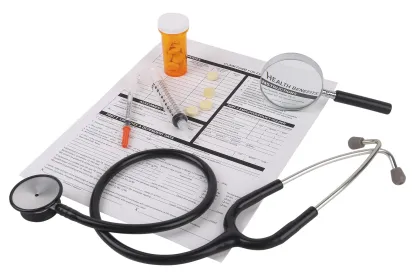New regulations issued by the Departments of Labor, Treasury, and Health and Human Services have expanded the use of health reimbursement accounts (“HRAs”) by allowing reimbursements for individual market insurance premiums. As noted in the final regulations, Individual Coverage HRAs and Excepted Benefit HRAs are group health plans subject to ERISA. However, individual health insurance coverage purchased through an Individual Coverage HRA will not be deemed to be an ERISA-covered group health plan or part of a group health plan, provided that the safe harbor described below is satisfied. If the safe harbor is not satisfied, the individual policies could become subject to ERISA’s regulatory framework, which includes coverage continuation requirements under COBRA, fiduciary responsibility, and various reporting and disclosure requirements.
Accordingly, to clarify these issues, the final regulations include a safe harbor that excludes individual insurance coverage that is reimbursed by an HRA from being deemed to be part of an ERISA-covered group health plan. The safe harbor generally tracks criteria recognized under similar safe harbor rules for voluntary employee benefit plans (i.e., common employee-paid voluntary insurance for things such as critical illness or accidents). In order to qualify for the safe harbor for individual insurance coverage, all of the following conditions must be satisfied:
-
The purchase of any individual health insurance coverage is completely voluntary for employees. An employee participating in an Individual Coverage HRA must be enrolled in individual insurance coverage. However, the fact that a plan sponsor requires an employee to purchase insurance coverage as a condition of participating in the Individual Coverage HRA does not make the purchase “involuntary” for the purpose of the safe harbor.
-
The employer, employee organization, or other plan sponsor does not select or endorse any particular issuer or insurance coverage. Plan sponsors may provide general assistance to employees in shopping for health insurance coverage, but the assistance must be unbiased and cannot steer employees towards a particular health insurer or type of coverage. Although plan sponsors may accommodate requests from insurance brokers to speak with employees or distribute informational materials at worksites, plan sponsors must accommodate such requests on a uniform basis and without preference for brokers that represent particular firms or have relationships with certain health insurance carriers. Maintaining an online platform that displays information about all coverage options in a state is permitted—but in order to be eligible for the safe harbor, the platform must present the coverage options in a way that is “entirely neutral” and plan sponsors could not recommend or “star” insurance coverage options on the platform.
-
Reimbursement for non-group health insurance premiums is limited solely to individual health insurance coverage. In order to comply with the safe harbor, only premiums for individual health insurance coverage as defined in DOL Reg. §2590.701-2 may be reimbursed; individual health insurance coverage that consists solely of excepted benefits does not satisfy the safe harbor. That said, the HRA may reimburse Medicare premiums for Medicare beneficiaries, as permitted under DOL Reg. § 2590.702-2, without falling outside the safe harbor. Reimbursement is defined broadly to include employee-initiated payments made through financial instruments such as pre-paid debit cards, as well as direct payments (individual or in the aggregate) made by the plan sponsor directly to the health insurance issuer. Employers cannot apply reimbursement procedures in a way that limits or endorses one insurer over another (for example, by making direct payments to certain health insurers and refusing to make direct payments to others). This would run afoul of the “endorsement” requirement discussed above.
-
The employer, employee organization, or other plan sponsor receives no consideration in the form of cash or otherwise in connection with the employee’s selection or renewal of any individual health insurance coverage. The preamble to the final regulations emphasizes that plan sponsors may not receive consideration or “kick-backs” from any insurance issuer or affiliated person in connection with any employee’s purchase or renewal of individual insurance coverage that is reimbursed by the HRA. Accordingly, compensation from third parties (such as individual insurers) to cover the cost of operating the HRA would be prohibited payments and not permissible under the safe harbor. This requirement does not affect the rules that apply to determining whether ERISA-covered plans (including HRAs) may reimburse plan sponsors for certain expenses associated with plan administration—so, to the extent that plan assets are used to reimburse a plan sponsor for administration expenses, such reimbursements would need to be permissible under ERISA section 408(b)(2) and DOL Reg. § 2550.408b-2(e).
-
Each plan participant is notified annually that the individual health insurance coverage is not subject to ERISA. For Individual Coverage HRAs, the annual notice must meet the notice requirements set forth in the Individual Coverage HRA integration rules at DOL Reg. § 2590.702-2(c)(6). For qualified small business health reimbursement arrangements or HRAs that are not subject to those notice requirements, the regulations provide sample notice language that may be used to satisfy the safe harbor.
* * *
The safe harbor in the final regulations provides some, but not complete, relief for plan sponsors. For those plan sponsors that allow employees to purchase any individual market coverage, the safe harbor should be easy to satisfy. However, some plan sponsors may wish to establish a private individual health coverage exchange through which employees can purchase selected health insurance policies. In that case, plan sponsors will need to be cognizant of the “no endorsement” requirement when designing the scope of the private exchange.




 />i
/>i
